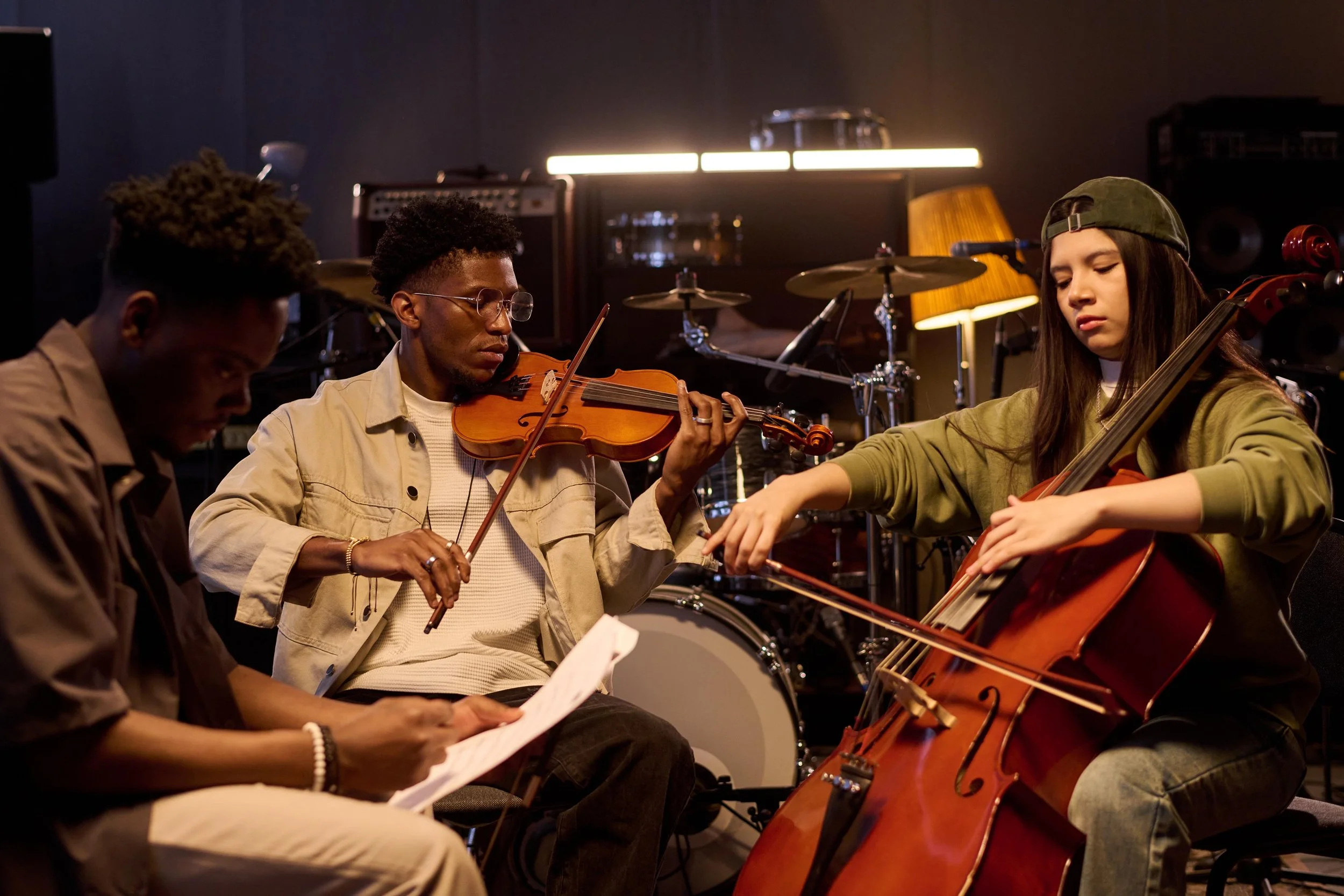
MUSIC
Choose to study BTEC National Extended Certificate in Music Performance at Brooksbank Sixth College and get the opportunity to progress to a degree in a Music discipline or a degree where Performing Arts-related skills and knowledge may be advantageous. The course enables learners to develop knowledge and skills needed for entry-level roles related to Music. These could include vocational apprenticeship roles and trainee/entry-level roles, such as roles in administration, instrumental teaching, event management and community arts work.
Studying BTEC Level 3 Music gives learners the opportunity to formalise and deepen their knowledge, experience and understanding of the contemporary music industry. They will analyse performance practice and incorporate current trends into their own music-making in ensemble settings as well as strengthen their knowledge of the rudiments of music. This knowledge will then be put into practical use in vocational contexts to deepen their awareness of relationships within the organisations found in today’s ever-evolving music industry. Although the course is largely practical, and mostly focused on the performance of contemporary music, 2 units have externally assessed written exams.
What will I study?
-
BTEC Extended Certificate (Level 3 A level equivalent).
Exam board: Pearson.
-
Assessment: 42% coursework, 58% external assessment.
Course Structure: Everyone taking this qualification will study three mandatory units, which provide an essential introduction to the skills and knowledge required to be successful in music. They cover the following topics:- Ensemble music performance.
- Professional practice in the music industry.
- Practical music theory and harmony.
The optional units have been designed to complement the knowledge and skills developed in ensemble music performance and support progression to more specialist creative courses in higher education. They also link with relevant occupational areas. The optional units cover the following areas:
- Composing music.
- Music performance session styles.
- Solo performance.
- Improvising music.
The UK music industry helps to drive economic growth by creating jobs and opportunities for young people. As well as playing a part in the cultural life of a country, it has significant economic benefits, it is hugely diverse and embraces many different art forms, jobs and types of organisations. With the advances in technology, there are now many routes within music. Students can focus on creating music, mastering techniques as an instrumentalist, producing music using technology, singing or performance as well as an opportunity to explore writing songs or managing the equipment used in the music-making process.
-
Grade 4 in English. Instrumental/vocal skills - ABRSM Grade 4, can be assessed on an audition basis. GCSE Music 4 or BTEC in Music at Merit is desirable but not essential. Must be prepared to take regular voice/instrumental lessons
YOUR NEXT STEPS
YOUR NEXT STEPS
Music is a creative and intellectually rigorous subject that is highly valued by employers and universities for developing both artistic and analytical skills. Studying the subject develops essential musical knowledge, performance abilities and understanding of compositional techniques required for careers in the music industry, education and creative sectors. You will also gain valuable transferable skills such as creativity, discipline, teamwork, confidence, attention to detail and time management that are highly sought after across a wide range of degree programmes beyond music.
Past students have progressed to study diverse courses including music, music technology, sound engineering, performing arts, music therapy, teaching, media production, event management, business management and audio-visual production.




